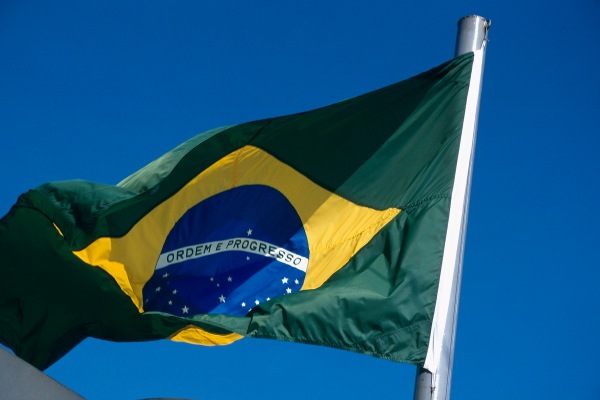By Fabio Kerche*
Clik here to view.

The Brazilian flag. / Club Med UK / Flickr / Creative Commons
The political and economic crisis punctuated by the impeachment of Brazilian President Dilma Rousseff in 2016 persists unabated under the troubled administration of Michel Temer. Stagnation is fueling unemployment, and the government’s efforts to rein in pensions and limit public spending are reinforcing the perception that the principal objective of those who ousted Dilma is to cut back on social rights promised in the 1988 Constitution and deepened by Dilma and her predecessor, Luiz Inácio Lula da Silva. Even more ominously, the continuing cascade of corruption allegations is also undermining support for the new government.
- Surveys show that only 10 percent of Brazilians rate the Temer government as “good” or “great,” and that its legitimacy is further undermined by whistleblowers alleging that the president and nine of his ministers are corrupt.
The notorious “Car Wash” anti-corruption campaign is hurting more than Temer and his men. Zealous prosecutors and judges are essentially criminalizing not only politicians’ behavior but, through aggressive interpretations of the law, the practice of politics itself. The targeting of Dilma’s leftist PT is most obvious, but the deluge of charges is now buffeting all the major political parties. Leaders of the center-right PSDB, including former President Fernando Henrique Cardoso, have been accused of corruption as well. Except for some miniscule political parties, virtually the entire political system now faces corruption charges.
The 2018 presidential election offers the most plausible avenue for emerging from the crisis, but even that remains highly problematic. There is a relative consensus among the political class and political analysts that a new, legitimate, and directly elected president could reverse, or at least limit, the deterioration of the political system. With just over a year remaining for candidates to register, the likely roster is very uncertain, in part because a basic feature of constitutional democracy – that citizens are allowed to compete for office – is increasingly in jeopardy amid the current anti-corruption fever. Early polls place Lula as the strongest among the likely candidates, and he remains in first place even when surveys include Sérgio Moro, the most important judge in the Car Wash saga, who has not declared himself to be in the running. But it is unclear whether the courts will let Lula stand for office. Right-wing media are hammering Lula’s alleged corrupt practices while downplaying those of Temer and his cabinet. Potential candidates of PSDB have been denounced for receiving bribes and having overseas bank accounts, and their numbers are shrinking in the polls. An alternative now being floated as a potential PSDB candidate is João Dória, the newly elected mayor of São Paulo who, like U.S. President Donald Trump, is a non-mainstream politician and businessman who formerly hosted the Brazilian version of the TV show The Apprentice.)
- This uncertainty – even if the parties resist the continuing wave of Car Wash denunciations and take back some political space from the unelected judicial branch of government – raises the question whether, over the next 18 months, Brazil’s 32 year-old democracy proves itself to be irreversible or to have been an all too brief interlude in the country’s political history. The apparent appeal of outsiders in an environment that is criminalizing politics is a worrisome sign.
April 24, 2017
* Fabio Kerche is Research Fellow at CLALS and Researcher at Casa de Rui Barbosa Foundation, Rio de Janeiro.
Tagged: 2018 elections, Anti-Corruption Efforts, Brazil, Brazilian Elections, Brazilian Politics, Brazilian Socialist Party (PSB), Constitutional Crisis, Corruption, Democracy, Dilma Rousseff, Luiz Inácio Lula da Silva, Operation Car Wash, Temer (Michel) Image may be NSFW.
Clik here to view.
 Image may be NSFW.
Image may be NSFW.Clik here to view.
